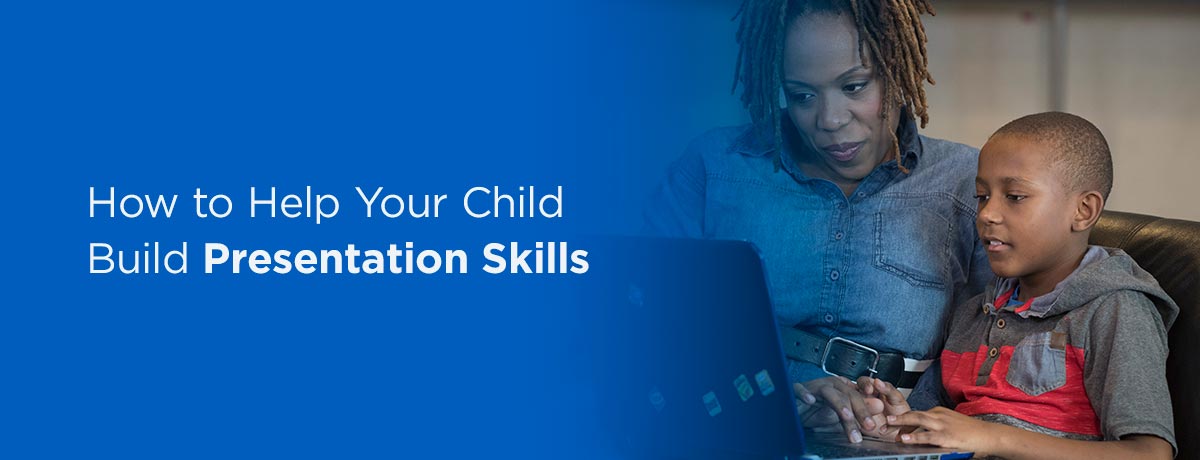Enrollment Now Open for Second Semester. Click Here
Enrollment Now Open for Second Semester. Click Here

Good communication is one of the most essential skills you can have, and it’s best to start learning as early as possible. However, giving a speech or presentation can be intimidating for a child, especially when it’s their first time.
Fortunately, you can do many things to help your child write a strong speech, manage nerves, and give an excellent presentation. Here are our top presenting in-front-of-an-audience tips to teach your child.
From teaching effective research skills to helpful nerve-managing techniques, there’s a lot you can do to help your student have a positive presentation experience. Learn how to help your child develop presentation skills with these six tips.
Research is an important first step to creating a successful presentation. Here are some good research tips to teach your child:
Once your child has researched and found any information relevant to their presentation, it’s time to start putting it together. A speech typically has an introduction, a body, and a conclusion and includes both facts and opinions.
Discuss this structure with your child and have them write out a draft. Then, you can check the draft for any necessary revisions and make suggestions. Your child should then revise their speech using your feedback for guidance — this teaches them the importance of editing and revision in writing.
After they’ve written their speech, determine if they can use any visual aids to make the presentation more engaging, such as a few slides with pictures and diagrams or objects to show the class. Remind your student to choose these visuals carefully, selecting interesting photos or relevant items.
You also might consider having them prepare some note cards. These should include the general structure of the speech and any parts they may be likely to forget.
To improve communication and presentational skills, have your child practice their speech multiple times until they feel comfortable and confident. Gather your family members to watch so they can practice in front of an audience.
Teach your child the importance of maintaining eye contact with the audience, a steady speaking pace, and good volume. Have them practice enunciating their words clearly. Practicing in front of a mirror allows them to observe their body language and facial expressions.
Giving a presentation can be nerve-wracking — not just for kids but for any age group. If your child is feeling nervous about their presentation, here are some exercises that may help:
Additionally, you can point out that strong visual aids will divert the audience’s focus from the speaker, as they’ll be watching the images instead. This may also help your child feel less nervous.
Selecting appropriate clothing is another important step in preparing for a presentation. Depending on the class and speech, your child may need to dress formally or casually. Either way, a clean and presentable outfit can build confidence and help them feel good about their appearance. Help your student choose an outfit in which they feel happy and comfortable.
Finally, encouraging regular discussion in your family is another excellent way to prepare your child for future speeches. This gets your child used to speaking and helps them develop communication skills over time. For example, you can encourage family conversation at the dinner table. Ask your child questions about their day, how school went, their interests, and any other topics you can brainstorm.
Additionally, conversation cards — which you can find in many online and in-person stores — are a fun, engaging way for kids to practice sharing things about themselves. The cards provide open-ended sentence starters to prompt conversation, making them a great way to practice speaking skills. They can also support social and emotional development by allowing children to share their thoughts, feelings, and ideas with others.
At Commonwealth Charter Academy in Pennsylvania, we understand the importance of good speaking tips for kids. With our customized K-12 cyber schooling program, we help prepare students for their futures with materials, content, and courses tailored to all grade levels and interests. Strong speaking, writing, and communication are just some of the many skills your child can develop when you enroll in our school.
Learn more about CCA’s personalized approach to learning and skill-building by requesting information today!
Enrollment Now Open for Second Semester. Click Here